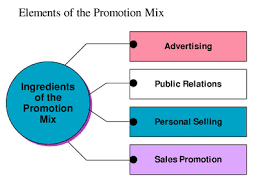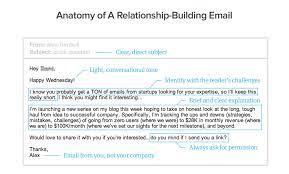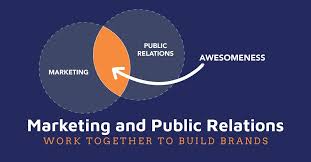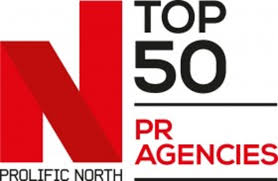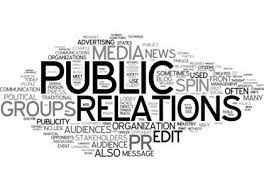Unlocking Success: The Art of Public Relations Promotion
The Power of Public Relations Promotion
Public relations promotion plays a crucial role in shaping the image and reputation of a business or organisation. It involves managing communication between an entity and its target audience to build trust, credibility, and positive relationships.
One of the key benefits of public relations promotion is its ability to create brand awareness. By strategically communicating with the media, influencers, and the public, businesses can increase their visibility and reach a wider audience. This can help attract new customers, investors, and partners.
Moreover, public relations promotion can enhance a company’s credibility and trustworthiness. Through thought leadership articles, press releases, and media interviews, businesses can establish themselves as industry experts and gain the trust of their stakeholders.
Effective public relations promotion also plays a vital role in managing crises and mitigating negative publicity. By promptly addressing issues, providing transparent communication, and showcasing proactive measures, businesses can protect their reputation and maintain the trust of their audience.
Furthermore, public relations promotion can help businesses differentiate themselves from competitors. By highlighting their unique selling points, values, and achievements through strategic communication campaigns, companies can stand out in a crowded market and attract loyal customers.
In conclusion, public relations promotion is an essential tool for businesses looking to build brand awareness, credibility, trust, and differentiation. By investing in effective PR strategies and campaigns, companies can strengthen their reputation, engage with their target audience effectively, and ultimately achieve long-term success.
9 Essential Tips for Effective Public Relations Promotion
- Understand your target audience and tailor your message to resonate with them.
- Build strong relationships with journalists and media outlets to increase coverage.
- Utilise social media platforms effectively to engage with your audience and share updates.
- Create compelling content that tells a story and showcases your brand’s values.
- Monitor public perception and address any issues or concerns promptly.
- Collaborate with influencers or brand ambassadors to extend your reach and credibility.
- Participate in relevant events, conferences, or community activities to enhance visibility.
- Seek feedback from stakeholders to continuously improve your PR strategies.
- Stay informed about industry trends and adapt your approach accordingly.
Understand your target audience and tailor your message to resonate with them.
To succeed in public relations promotion, it is crucial to understand your target audience thoroughly and tailor your message to resonate with them effectively. By conducting in-depth research and analysis, businesses can gain insights into the preferences, needs, and behaviours of their audience. This knowledge allows for the creation of tailored communication strategies that speak directly to the audience’s interests and concerns, increasing the likelihood of engagement and positive reception. By crafting messages that resonate with their target audience, businesses can build stronger connections, foster trust, and ultimately drive successful outcomes in their public relations efforts.
Build strong relationships with journalists and media outlets to increase coverage.
Building strong relationships with journalists and media outlets is a fundamental tip in public relations promotion. By establishing trust and rapport with key members of the media, businesses can enhance their chances of securing valuable coverage for their brand. Cultivating these relationships allows for more meaningful interactions, better understanding of journalists’ preferences, and increased opportunities for positive exposure. Consistent engagement and providing relevant, newsworthy content can lead to expanded media coverage, helping businesses to effectively reach their target audience and build a positive reputation in the industry.
Utilise social media platforms effectively to engage with your audience and share updates.
Utilising social media platforms effectively is a key tip in public relations promotion. Engaging with your audience through platforms such as Facebook, Twitter, Instagram, and LinkedIn allows you to interact directly with your target demographic, build relationships, and share timely updates about your business or organisation. By leveraging the power of social media, you can foster a sense of community, increase brand visibility, and create opportunities for two-way communication that can enhance your overall PR efforts and strengthen your online presence.
Create compelling content that tells a story and showcases your brand’s values.
Creating compelling content that tells a story and showcases your brand’s values is a powerful tip for effective public relations promotion. By crafting narratives that resonate with your target audience and authentically reflect your brand’s ethos, you can establish a strong emotional connection and build trust. Storytelling allows you to humanise your brand, making it more relatable and memorable to consumers. Through compelling content that highlights your values, mission, and unique selling points, you can differentiate your brand in the market and leave a lasting impression on your audience.
Monitor public perception and address any issues or concerns promptly.
Monitoring public perception and addressing any issues or concerns promptly is a critical aspect of effective public relations promotion. By staying attuned to how the audience perceives a business or organisation, PR professionals can proactively manage their reputation and maintain positive relationships. Addressing issues in a timely manner demonstrates transparency, accountability, and a commitment to resolving challenges, which can help prevent minor concerns from escalating into larger problems. By actively listening to feedback and engaging with stakeholders, businesses can build trust, credibility, and goodwill within their community.
Collaborate with influencers or brand ambassadors to extend your reach and credibility.
Collaborating with influencers or brand ambassadors is a powerful strategy to enhance your public relations promotion efforts. By partnering with individuals who have a strong following and credibility in your industry, you can tap into their audience and leverage their influence to reach a wider demographic. This collaboration not only extends your brand’s reach but also boosts your credibility, as the endorsement from trusted influencers can significantly impact how your brand is perceived by the public. Building relationships with influencers or brand ambassadors can help you establish authenticity, build trust, and create meaningful connections with your target audience, ultimately strengthening your overall PR strategy.
Participate in relevant events, conferences, or community activities to enhance visibility.
Participating in relevant events, conferences, or community activities is a valuable tip for enhancing visibility through public relations promotion. By actively engaging in such gatherings, businesses can connect with their target audience, industry influencers, and potential partners. This presents an opportunity to showcase expertise, build relationships, and increase brand awareness. Attending and participating in these events not only helps in networking but also demonstrates a company’s commitment to being an active and engaged member of the community or industry. It is a proactive approach that can lead to valuable connections, media coverage, and opportunities for growth.
Seek feedback from stakeholders to continuously improve your PR strategies.
Seeking feedback from stakeholders is a valuable practice that can significantly enhance the effectiveness of your public relations promotion efforts. By actively listening to the perspectives and insights of key stakeholders, such as customers, employees, investors, and partners, you can gain valuable information on what is working well and areas that may need improvement in your PR strategies. This feedback loop allows you to make informed decisions, refine your communication approaches, and ultimately strengthen your relationships with stakeholders while driving better results for your business. Continuous improvement based on stakeholder feedback is key to staying relevant, responsive, and successful in the dynamic field of public relations promotion.
Stay informed about industry trends and adapt your approach accordingly.
To succeed in public relations promotion, it is crucial to stay informed about industry trends and be willing to adapt your approach accordingly. By keeping abreast of the latest developments and shifts in the market, you can tailor your communication strategies to resonate with your target audience effectively. This proactive approach not only demonstrates your expertise and relevance but also ensures that your PR efforts remain impactful and aligned with the evolving needs of your industry.



